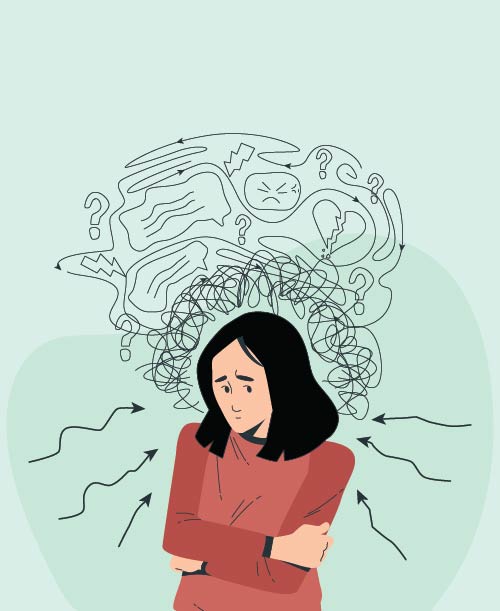

Early Signs of Mental Health Issues and How to Get Help
Mental illness signs can tend to go unnoticed until one has gone quite far down. There are certain early signs of mental health issues that you can catch on to if you look closely enough.
Possible Indications of Mental Illnesses
Signs that a person might have or be developing a mental illness include:
• bizarre or unusual thinking
• confusion and disorientation
• destructive or high-risk behaviour
• hallucinations (you can see, hear, feel or taste something that is not actually there)
• problems with functioning in your work or social life
• restless, agitated and disorganised behaviour or marked decrease in activity
• significant changes of mood (up or down)
• significant impairment in self-care
• suicidal thoughts or acts of self-harm
• delusions (false beliefs, you strongly feel something is real, but it is not).
• Sleep problems (sleeping too much or too less can be an indication)
• Weight or appetite changes (fluctuating weight or rapid weight loss can be a sign of mental health disorder)
• Substance abuse (using substances to cope from an incident or situation)
When to Seek Medical Help?
Experiencing one or two of the above listed symptoms does not necessarily mean you have a mental illness but a few occurring together can mean it is time to talk to a healthcare professional, especially if the symptoms are affecting your study, work or relationships.
Early intervention may make an important difference so seek mental health advice early. Below mentioned are some ways which can be helpful.
• Speak to a counsellor about your thoughts and feelings and learn stress management techniques if required.
• Visit your local doctor for an assessment and advice. They may suggest you a combination of medication, counselling, or therapy basis the symptoms you are experiencing.
• Speak to a family member or trusted friend about your thoughts, feelings or behaviour
• Do some research about common mental health conditions to see if you recognise any of the signs or symptoms of mental illness
• If your budget is what’s holding you back, there are plenty of free or affordable therapy platforms out there.
Conclusion:
The symptoms of mental illness may come on quickly. Almost all mental health problems can be treated or at least lessened in their severity. Getting help early can prevent what could become a lifelong mental illness.
Sources: Mayo clinic, Forbes, JED foundation, Better health
Disclaimer: This blog provides general information and discussions about health and related subjects. The information and other content provided in this blog, website or in any linked materials are not intended and should not be considered, or used as a substitute for, medical advice, diagnosis or treatment. Kindly contact your Doctor before starting a new medicine or health regime.
Related Articles
Mental Stress Can Affect Your Body – Find Out How
How Does Raising Mental Health Awareness Help
What Is The Connection Between Heart Health And Stress?
How Social Media Affects Your Mental Health And Leads To Anxiety
Practice Mindfulness Techniques To Get Rid Of Stress
Published on October 11, 2022

















 Car Insurance
Car Insurance  Bike/Two Wheeler Insurance
Bike/Two Wheeler Insurance  Health Insurance
Health Insurance  Pet Insurance
Pet Insurance  Travel Insurance
Travel Insurance  Home Insurance
Home Insurance  Cyber Insurance
Cyber Insurance  Third Party Vehicle Ins.
Third Party Vehicle Ins.  Tractor Insurance
Tractor Insurance  Goods Carrying Vehicle Ins.
Goods Carrying Vehicle Ins.  Passenger Carrying Vehicle Ins.
Passenger Carrying Vehicle Ins.  Compulsory Personal Accident Insurance
Compulsory Personal Accident Insurance  Travel Insurance
Travel Insurance  Rural
Rural  Critical illness Insurance
Critical illness Insurance